As the world becomes more aware of the environmental impact of single-use plastics, reusable grocery bags have gained popularity as a sustainable alternative. These bags, which are often made from materials such as canvas, jute, or recycled plastic, are designed to be durable and long-lasting. But are they truly safe and sustainable to use?
One of the main concerns regarding reusable grocery bags is their potential to harbor bacteria and other contaminants. A study conducted by the University of Arizona found that reusable bags used for transporting raw meat and produce can become a breeding ground for harmful pathogens. However, this risk can be mitigated by proper cleaning and maintenance of the bags. Regularly washing the bags with hot water and soap, or using antibacterial wipes, can help prevent the growth of bacteria and ensure their safety.
Another aspect to consider is the environmental impact of reusable grocery bags. On one hand, these bags have the potential to significantly reduce the amount of plastic waste produced. According to the World Wildlife Fund, it is estimated that reusable bags can replace up to 1,000 plastic bags over their lifespan. Additionally, many reusable bags are made from recycled materials or are themselves recyclable at the end of their useful life. This extends their sustainability and reduces their overall environmental footprint.
While reusable grocery bags offer a more sustainable option for shopping, they are not without their drawbacks. Some critics argue that the production and transportation of these bags can result in a higher carbon footprint compared to their single-use counterparts. Additionally, the durability of reusable bags can vary, and if they are not used frequently enough, their environmental benefits may be negated. It is important for consumers to choose high-quality reusable bags and use them consistently to maximize their sustainability.
In conclusion, reusable grocery bags can be a safe and sustainable choice for consumers looking to reduce their plastic waste. However, proper cleaning and maintenance are essential to ensure their safety, and careful consideration should be given to their production and use to maximize their positive impact on the environment.
- The Problem with Single-Use Plastic Bags
- The Benefits of Reusable Grocery Bags
- Are Reusable Grocery Bags Safe for Food Contact?
- Benefits of using reusable grocery bags for food contact
- Tips for using reusable grocery bags safely for food contact
- How to Choose the Right Reusable Grocery Bag
- Question-answer:
- Are reusable grocery bags safe to use?
- Are reusable grocery bags sustainable?
- What are the benefits of using reusable grocery bags?
- How long do reusable grocery bags last?
The Problem with Single-Use Plastic Bags
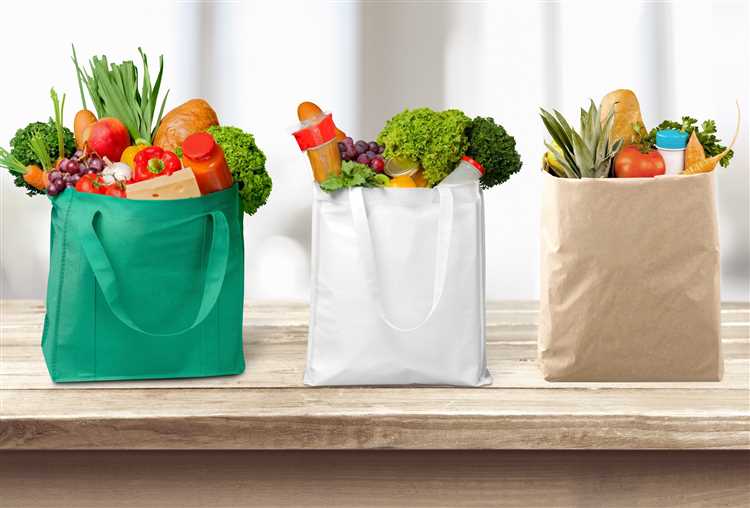
Single-use plastic bags have become a major environmental issue in recent years. These bags are typically made from polyethylene, a non-biodegradable material that takes hundreds of years to decompose in the environment. As a result, many of these bags end up in landfills or as litter in oceans and waterways, causing significant harm to wildlife and ecosystems.
In addition to their long decomposition time, single-use plastic bags also contribute to the depletion of non-renewable resources. The production of these bags requires the extraction and refinement of fossil fuels, which have a negative impact on the environment and contribute to climate change.
Furthermore, the manufacture of single-use plastic bags also produces harmful greenhouse gases and toxic chemicals. These emissions contribute to air pollution and have been linked to various health problems in humans, including respiratory issues and certain types of cancer.
Another problem with single-use plastic bags is the fact that they often end up as litter. Even when disposed of properly, these bags can easily become windblown or swept away by water, leading to pollution of landscapes, water bodies, and beaches.
Moreover, the littered plastic bags can be mistaken for food by marine animals and birds, leading to ingestion and entanglement. This can result in injury or death for these animals, as the plastic bags can block their digestive systems or cause them to become entangled, preventing them from swimming or flying properly.
In response to the environmental impacts of single-use plastic bags, many countries and cities have implemented bans or taxes on these bags. The aim is to encourage consumers to switch to reusable alternatives, such as cloth or canvas bags, which have a significantly lower environmental impact.
By reducing the use of single-use plastic bags, we can help conserve resources, minimize pollution, and protect marine and terrestrial wildlife. Using reusable grocery bags is not only safer for the environment, but also a more sustainable choice for our planet’s future.
The Benefits of Reusable Grocery Bags
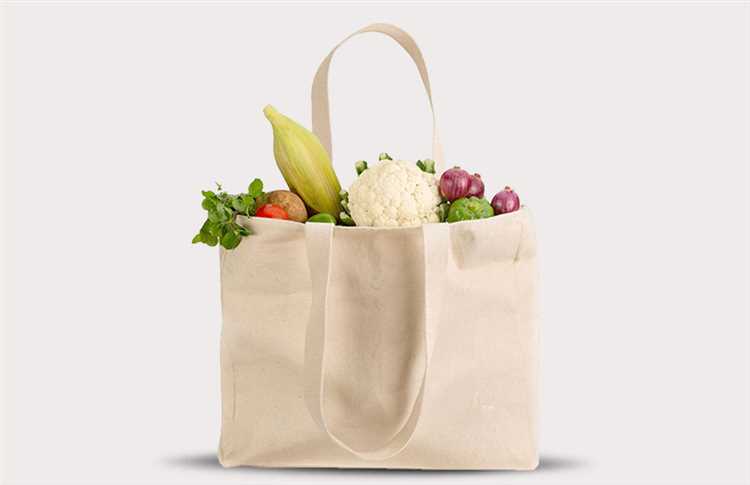
Reusable grocery bags have gained popularity in recent years due to their numerous benefits. Here are some reasons why using reusable grocery bags is a great choice:
- Environmental Impact: Reusable grocery bags are an eco-friendly alternative to single-use plastic bags. By using reusable bags, you can reduce the amount of plastic waste that ends up in landfills or pollutes our oceans.
- Resource Conservation: The production of plastic bags requires significant amounts of oil and natural gas, non-renewable resources. By switching to reusable bags, we can help conserve these valuable resources.
- Durability: Reusable bags are made to last. Unlike single-use plastic bags that tear easily, reusable bags are designed to withstand multiple uses, making them a more durable option for carrying groceries.
- Convenience: Many reusable grocery bags are lightweight and foldable, making them easy to carry and store. They typically have larger capacities than plastic bags, allowing you to fit more groceries in a single bag.
- Cost Savings: While reusable bags may have a higher upfront cost, they can save you money in the long run. Since they are designed for multiple uses, you won’t need to constantly buy new bags. Some stores even offer discounts for bringing your own bags.
- Reduced Litter: One of the biggest issues with single-use plastic bags is that they often end up as litter in our streets and natural environments. By using reusable bags, we can help reduce litter and keep our surroundings clean.
- Health and Safety: Reusable bags are generally considered safe to use. Unlike plastic bags, they do not contain harmful chemicals or toxins that can leach into your food or harm your health.
Overall, using reusable grocery bags is a sustainable and responsible choice. Not only do they help protect the environment and conserve resources, but they also offer durability, convenience, cost savings, and improved safety. So, next time you go grocery shopping, remember to bring your reusable bags!
Are Reusable Grocery Bags Safe for Food Contact?
Reusable grocery bags have become increasingly popular for their environmental benefits. However, concerns have been raised about the safety of using these bags for carrying food items.
Reusable grocery bags are generally made from materials such as cotton, polyester, or polypropylene. These materials are considered safe for food contact and do not impart any harmful substances to the food. Additionally, these bags are often washable, making them easy to clean and maintain hygiene.
Benefits of using reusable grocery bags for food contact
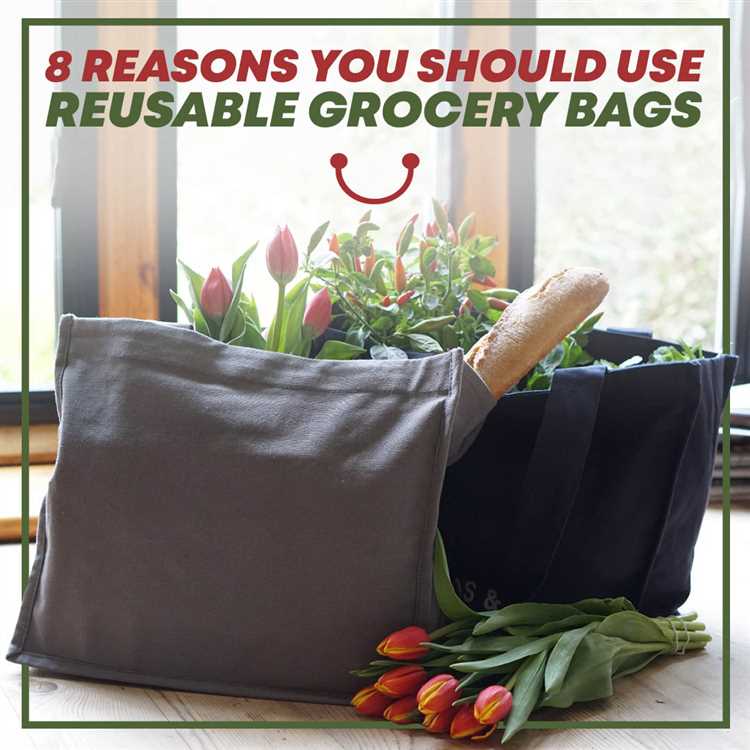
Using reusable grocery bags for food contact has several benefits. Firstly, it reduces the need for single-use plastic bags, which can take hundreds of years to decompose in the environment. By using reusable bags, we can significantly reduce plastic waste and its harmful effects on ecosystems.
Secondly, reusable bags are more durable than single-use plastic bags, reducing the risk of tears or spills and keeping food items secure. They are also more spacious and can accommodate larger quantities of groceries, reducing the need for extra bags.
Tips for using reusable grocery bags safely for food contact
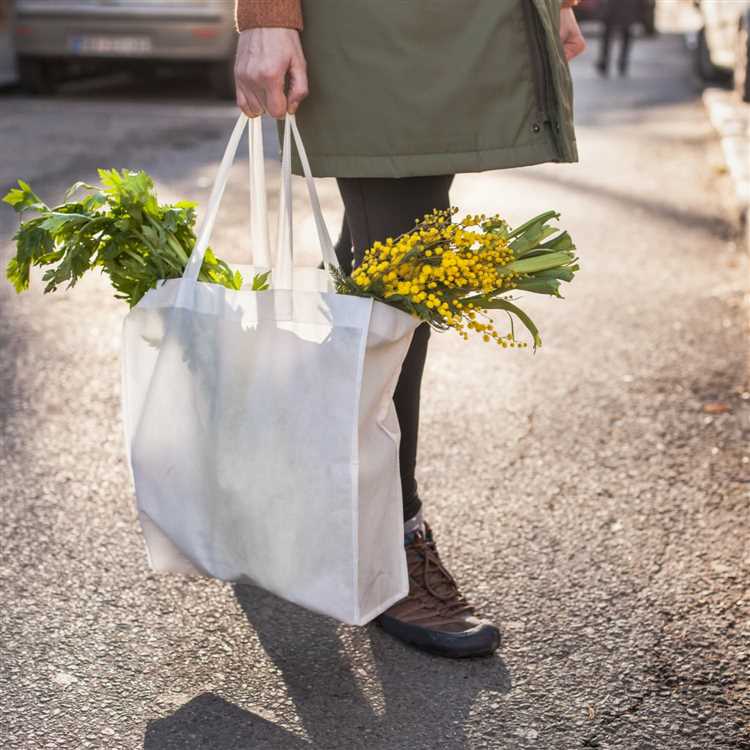
While reusable grocery bags are generally safe for food contact, it is important to follow some guidelines to ensure food safety:
1. Wash your reusable grocery bags regularly to remove any potential bacteria or food residue. Use hot water and soap or detergent to thoroughly clean the bags.
2. Separate raw meats and other perishable items from other groceries to prevent cross-contamination. Consider using separate bags for different food items or placing them in sealed plastic bags within the reusable bags.
3. Avoid using reusable bags for non-food items, such as cleaning supplies or personal care products, to prevent any potential chemical contamination.
By following these simple tips, you can safely use reusable grocery bags for food contact and contribute to a more sustainable and eco-friendly lifestyle.
How to Choose the Right Reusable Grocery Bag
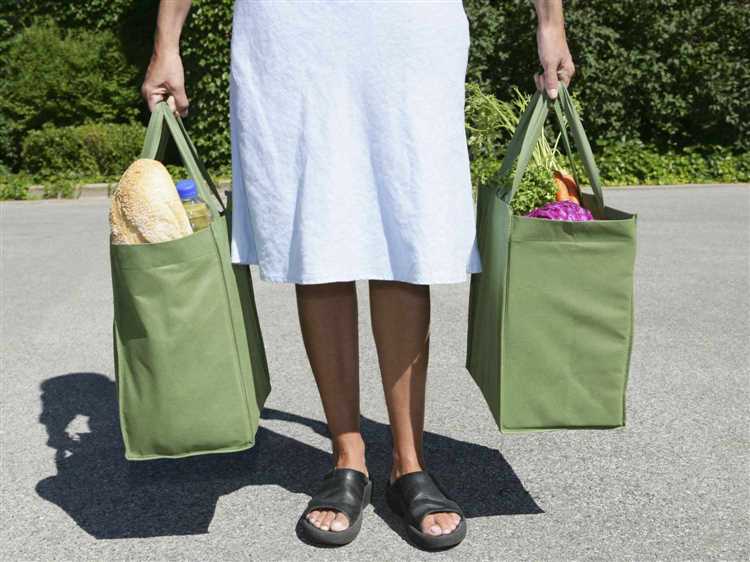
With the increasing popularity of reusable grocery bags, it’s important to choose the right one that is not only safe but also sustainable. Here are some factors to consider when selecting a reusable grocery bag:
Material: Look for bags made from natural fabrics like cotton or hemp, as they are biodegradable and have a lower environmental impact compared to synthetic materials like nylon or polyester. These natural fabrics are also less likely to contain harmful chemicals.
Size and Capacity: Consider the size and capacity of the bag based on your needs. Opt for a bag that is large enough to accommodate your groceries but not too big that it becomes difficult to carry.
Weight and Durability: Check the weight and durability of the bag. It should be able to withstand the weight of your groceries without tearing or breaking. Look for double-stitched seams and reinforced handles for added strength.
Easy to Clean: Choose a bag that is easy to clean. Look for bags that are machine washable or can be easily wiped clean with a damp cloth. This will ensure that your bag stays hygienic and free from any contamination.
Design and Style: While functionality is important, you can also choose a bag that suits your personal style. Many reusable grocery bags come in a variety of patterns and colors, so you can find one that reflects your personality.
Price: Consider your budget when choosing a reusable grocery bag. While some bags may be more expensive, they are often made from high-quality materials that will last longer. Remember, investing in a durable bag will save you money in the long run.
Additional Features: Some reusable grocery bags come with additional features like built-in insulation or separate compartments. Consider if these extra features are necessary for your shopping needs.
By considering these factors, you can choose a reusable grocery bag that is not only safe and sustainable but also fits your personal preferences. Remember, the goal is to reduce single-use plastic bags and make a positive impact on the environment.
Question-answer:
Are reusable grocery bags safe to use?
Yes, reusable grocery bags are generally safe to use. However, it is important to keep them clean to prevent the growth of bacteria. You can wash them regularly or use disposable liners to ensure their cleanliness.
Are reusable grocery bags sustainable?
Yes, reusable grocery bags are considered more sustainable than single-use plastic bags. They can be used multiple times, reducing the demand for single-use plastics and decreasing waste. Some reusable bags are also made from eco-friendly materials, making them even more sustainable.
What are the benefits of using reusable grocery bags?
There are several benefits of using reusable grocery bags. Firstly, they help reduce the use of single-use plastic bags, which are harmful to the environment. Secondly, reusable bags are more durable and can carry more items compared to plastic bags. Lastly, by using reusable bags, you can save money in the long run as you won’t need to purchase disposable bags frequently.
How long do reusable grocery bags last?
The lifespan of reusable grocery bags varies depending on their material and how well they are maintained. On average, a good quality reusable bag can last anywhere from one to three years. However, some bags can last even longer with proper care. It is recommended to check the manufacturer’s instructions for cleaning and maintenance to extend the life of reusable bags.
